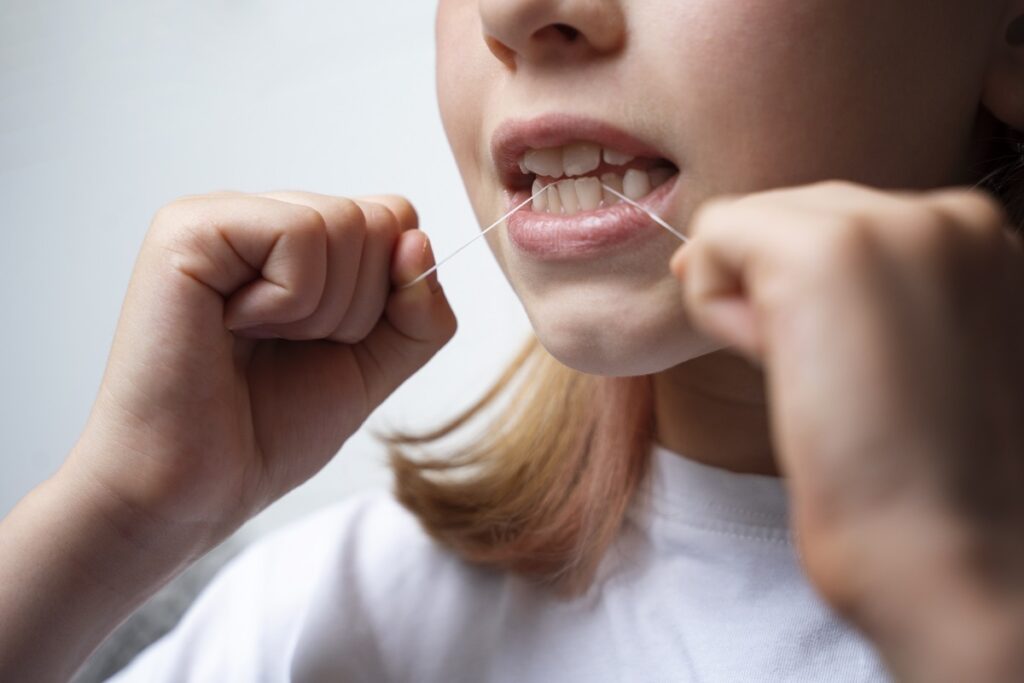Have you ever wondered: What’s the best time to floss? Maybe you’ve tried flossing before brushing your teeth, or perhaps you’ve always done it afterwards.
But which method is better for clean, white teeth? Let’s explore flossing before or after brushing in this blog post.
Flossing Before Brushing
Flossing before brushing your teeth might seem odd, but hear us out—it makes a lot of sense. When you first floss, you remove food particles and plaque between your teeth.
This allows your toothbrush to reach all the small places of your mouth better, ensuring a more thorough clean.
Removing the big pieces first makes it easier for the vacuum to pick up the smaller debris. Similarly, flossing before brushing sets the stage for your toothbrush to do its job effectively.
Another benefit of flossing before brushing is that it helps to dislodge any stubborn plaque or food particles between your teeth. Once these are removed, your toothbrush can better access the surfaces of your teeth.
Flossing After Brushing
Conversely, some people prefer to floss after brushing their teeth. One of the main reasons for this is that brushing first can loosen any debris trapped between your teeth, making removing it easier with floss.
Flossing after brushing allows you to finish off your oral hygiene routine with a flourish. After giving your teeth a good scrubbing, flossing provides the final touch, ensuring that no particles are left behind to cause trouble.
The question arising in your mind about “Should I floss before or after brushing?” is less important. Adding flossing to your daily oral hygiene routine, however, is crucial.
Additionally, flossing after brushing can help to dislodge any plaque that may have been loosened during brushing but not completely removed. This extra step can contribute to a more thorough cleaning and help prevent cavities and gum disease.
Brushing and Flossing for Optimal Oral Health
Brushing and flossing daily are crucial for maintaining good oral health. Making it a habit to brush and floss your teeth at least twice a day or once a day can help prevent tooth decay, gum disease, and bad breath.
By flossing regularly and practicing good oral hygiene habits, you can help keep your teeth and gums healthy for years. If you’re in Oakridge and looking for your oral health or any dental concerns, then don’t worry, we’ve got you covered.
Consult Us Today
Dentists at Oakridge want to make sure that you can keep your teeth in great shape and white for years to come. Anything can go wrong with your teeth at any time.
If you want to learn about brushing and flossing techniques, consult our dentist in Oakridge. We can share our best knowledge regarding when to floss: before or after brushing in person.


